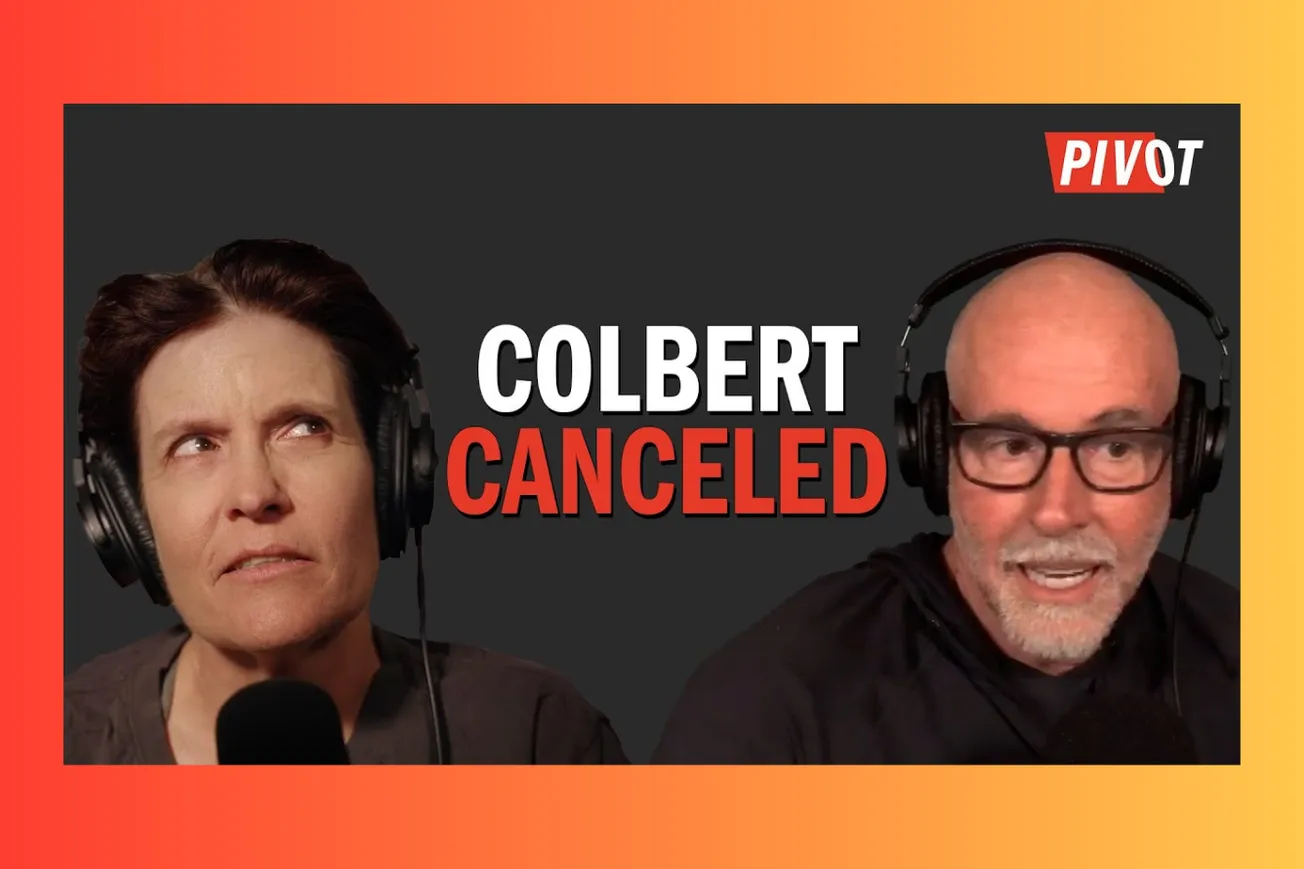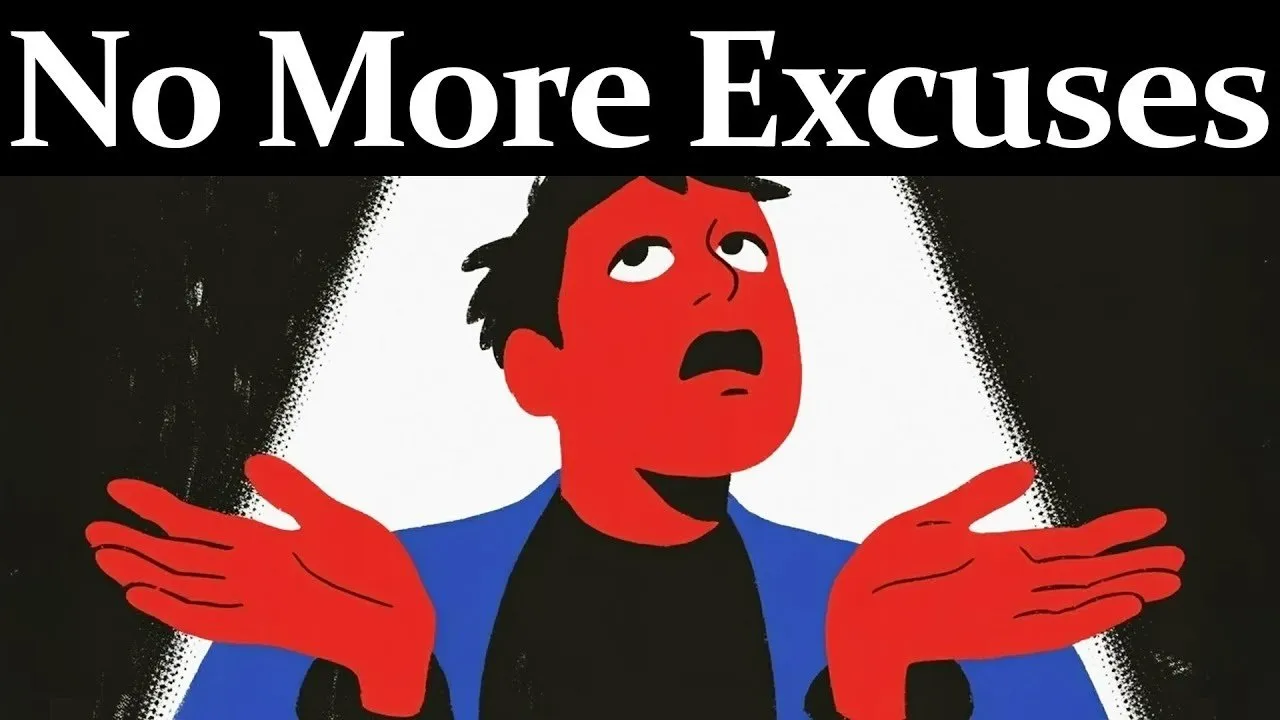Table of Contents
The writing's been on the wall for years, but CBS pulling the plug on Stephen Colbert's Late Show just made it official – we're watching the slow-motion collapse of late-night television as we know it.
Key Takeaways
- CBS canceled Colbert's show citing financial losses of $40 million annually, not political pressure from Trump's legal threats
- Late-night advertising revenue has plummeted from $400 million in 2018 to just $200 million today, cutting the market in half
- Colbert's show employed 200 people to generate $60 million in revenue, compared to podcasts achieving similar reach with 8-15 employees
- The demographic crisis is real – only 10% of Colbert's 2.4 million viewers fall into the advertiser-coveted 18-54 age group
- Traditional late-night hosts are finding new life in podcasting, where economics actually make sense and audiences engage more deeply
- Trump's simultaneous lawsuit against Rupert Murdoch over Epstein coverage appears to be pure distraction theater, not serious legal strategy
- The government's review of SpaceX contracts reveals America's uncomfortable dependence on Elon Musk's space monopoly
- This isn't just about one show – it's the end of late-night TV as a viable business model in the streaming age
The Numbers Don't Lie: Late Night's Economic Apocalypse
Here's the thing everyone's dancing around – this was never really about politics. Yeah, Trump's out there crowing about Colbert getting "fired," and sure, the timing looks suspicious given all the Epstein document releases. But when you dig into the actual economics, it's pretty clear CBS just couldn't justify hemorrhaging $40 million a year on a show that's fundamentally broken as a business model.
Think about what Colbert was working with. The show costs around $100 million to produce annually and brings in maybe $60 million in revenue. That's not a sustainable business, that's corporate charity. And here's the kicker – they're doing this with a staff of 200 people. Compare that to something like the Pivot podcast, which Scott Galloway mentioned will pull in $20-25 million next year with maybe 15 full-time employees. That's $1.5 million per employee versus Colbert's $300,000 per employee.
The advertising market for late-night has basically collapsed. We're talking about a 50% drop from $400 million in 2018 to $200 million today. That's not a dip, that's a crater. And it's not coming back because the fundamental way people consume content has shifted permanently.
- Late-night shows peaked when America had appointment television – everyone gathered around the TV at the same time
- Now people consume the best 4 minutes of late-night content on TikTok and YouTube, without ever watching the full show
- Advertisers are increasingly avoiding political content altogether, making shows like Colbert's radioactive to major brands
- The audience that remains skews heavily older, with only about 250,000 viewers in the 18-54 demographic advertisers actually want
The Coldplay Moment That Broke the Internet
Before we dive deeper into late-night's death spiral, we've got to talk about the Astronomer CEO situation because it perfectly captures how our media landscape has evolved. Andy Byron, the CEO of some data ops platform called Astronomer, got caught on a Coldplay kiss cam having what appeared to be an intimate moment with his company's head of HR. The internet absolutely lost its mind.
What's fascinating isn't the corporate scandal itself – that stuff happens all the time. It's how the viral nature of it created more awareness for this random B2B company than they probably got from years of traditional marketing. Before this week, nobody outside the tech world had heard of Astronomer. Now it's a household name, even if for all the wrong reasons.
The whole thing highlights something crucial about our current moment. You have zero expectation of privacy anymore, anywhere. Kiss cams have existed forever, but now that moment doesn't just entertain a stadium crowd – it can define your entire public identity within hours. These two people are going to be known for this moment for the rest of their lives. Every new community they move to, every tennis club they join, someone's going to remember "Oh, that's the Coldplay couple."
It's a perfect metaphor for what's happening to traditional media too. Everything's faster, more viral, more unforgiving. The old models of controlled messaging and scheduled programming just can't compete with the chaos of social media virality.
Trump's Distraction Playbook in Full Effect
Speaking of chaos, Trump's lawsuit against Rupert Murdoch over the Wall Street Journal's Epstein reporting is textbook distraction theater. The guy's facing 75% disapproval ratings on his handling of the Epstein files, so what does he do? Sue one of the most litigious media moguls in history over a story that's probably bulletproof.
Here's what's actually happening: Trump needs a new controversy every 24 hours to keep people from focusing on the mounting evidence of his relationship with Jeffrey Epstein. So his team sits around coming up with increasingly ridiculous distractions. Threatening to block the Washington Commanders' stadium deal unless they change their name back to the Redskins? That's not policy, that's performance art.
The Murdoch lawsuit is particularly telling because it shows Trump still doesn't understand who he's dealing with. Murdoch is 93 years old, worth billions, and has been in media wars longer than Trump's been famous. The guy survived phone hacking scandals, the Dominion lawsuit, and countless other crises. You think he's scared of a defamation suit from a president who draws pictures (despite claiming he doesn't)?
- The Wall Street Journal doesn't publish stories like this unless they have rock-solid sourcing – they learned that lesson the hard way with Dominion
- Murdoch has been positioning himself against Trump for years, waiting for the right moment to support a more controllable Republican
- This lawsuit gives Murdoch credibility as an independent news source, which actually helps his properties
- Trump has zero leverage over News Corp compared to other media companies
- Discovery in this case could expose way more embarrassing Trump information than it reveals about Murdoch
The SpaceX Problem Nobody Wants to Talk About
While everyone's focused on late-night TV and media lawsuits, there's a much more serious issue lurking in the background: America's dangerous dependence on Elon Musk's space capabilities. The government's review of SpaceX contracts found something that should terrify anyone thinking about national security – we literally cannot function without this guy's company.
SpaceX handles 52% of all global orbital launches and 84% of satellites by mass. In the US, they're doing 87% of launches, basically one every 2.1 days. Their Falcon Heavy can put a kilogram into space for $2,000, while the closest European competitor charges $9,000. It's not even close to being competitive.
But here's the really scary part: if Elon wakes up cranky one day, he can literally turn off battlefield communications for Ukraine, strand astronauts on the space station, or disable the satellite networks our carrier groups depend on for defense. We're talking about one person having the ability to reshape military conflicts based on his mood or blood sugar levels.
The solution isn't to destroy SpaceX – that would be cutting off our nose to spite our face. Instead, we need to treat it like the monopoly it is and regulate accordingly. Think about how we handle telecom networks. We don't break up Verizon or AT&T because the infrastructure is too expensive to duplicate, but we force them to lease access to smaller competitors at fair rates.
Same principle should apply to SpaceX. Let Musk keep his monopoly and get rewarded for the incredible engineering achievement, but require the company to provide launch services to competitors at regulated rates. That way we maintain the technological advantage while reducing the security risk of having one person control our space capabilities.
Where Late Night Goes From Here
So what happens to all these talented people who used to make late-night TV work? They're not going to disappear – they're going to adapt to where the audience actually is. And that's mostly podcasting and digital-first content.
Look at what's already happening. Conan O'Brien's podcast is massively successful. Sean Hayes and the SmartLess guys are printing money. Amy Poehler's crushing it in the podcast space. The economics just make so much more sense when you don't need 200 employees and a massive studio overhead.
Colbert's probably going to be fine in this transition. The guy's incredibly talented and has a built-in audience that will follow him wherever he goes. He could probably make his current $10-20 million salary doing a podcast with maybe eight people instead of 200. The margins are just infinitely better.
- Podcasts can monetize the same audience size with a fraction of the overhead
- The audience engagement is deeper – people listen to entire episodes rather than consuming clips
- You can build direct relationships with advertisers without network interference
- The content can be more authentic without broadcast standards restrictions
- International distribution is automatic, not dependent on syndication deals
The Monoculture is Dead, Long Live the Microcultures
What we're really witnessing is the final collapse of the media monoculture. There used to be three networks, a handful of late-night hosts, and everyone basically consumed the same content at the same time. That world is gone forever.
Now we have infinite choice, infinite creators, and infinite ways to consume content. The economics that supported massive productions like late-night shows just don't work anymore because the audience has fragmented into thousands of smaller niches.
This isn't necessarily bad – it's just different. Instead of one Colbert reaching 2.4 million people, we might have 50 podcasters each reaching 50,000 people in their specific niche. The total reach might be the same, but the economics are distributed instead of concentrated.
The late-night format worked brilliantly for decades because it solved a specific problem: giving people something entertaining to watch after the news before bed. But now people don't watch the news at a scheduled time, they don't go to bed at the same time, and they definitely don't all want the same type of entertainment.
We're not mourning the death of comedy or political commentary – we're mourning the death of a specific business model that served its purpose and then became obsolete. The talent will find new platforms, the audiences will find new sources of entertainment, and the economics will eventually stabilize around whatever models actually work in this new landscape.
The revolution isn't coming – it's already here. We're just watching the last gasps of the old system as it finally admits defeat.





